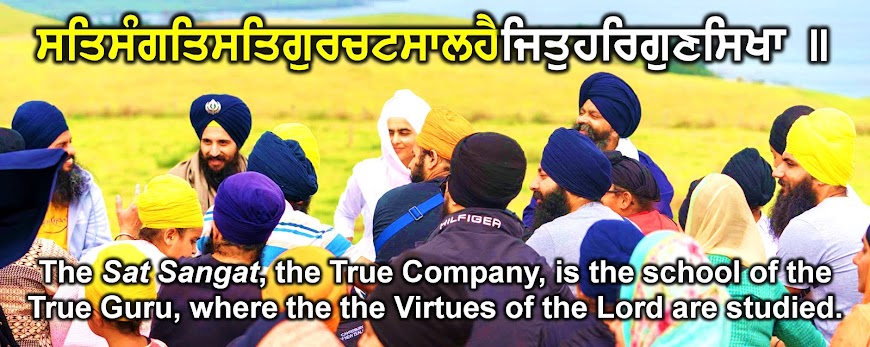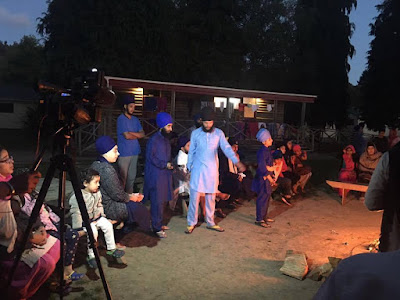A child asks his mother, "Maa, which is the true picture of Guru Nanak Dev Ji?"
The mother says, "Son, why do you ask?"
The child says, "Maa, people have made pictures of Guru Nanak Dev Ji, however each picture looks different. If the picture is truly of Guru Nanak Dev Ji, then wouldn't the pictures at least look like the same person physically?"
"You are right, my son," the mother says. "However, people have made these pictures out of devotion. This what people thought Guru Nanak Dev Ji looked like."
The child says, "But Maa, if Guru Nanak Dev Ji truly showed himself to people or had people made pictures of him, wouldn't the pictures at least look like they are showing the same person? Some pictures Guru Ji is wearing a hat, another Guru Ji has a short beard, in another Guru Ji is made to look overweight, in another Guru Ji has a long face, and in another Guru Ji has a round face... Which is the true picture of Guru Nanak Dev Ji?"
The mother says, "Son, looking at pictures it reminds us of the Guru. Whatever the picture looks like, however, someone thinks Guru Nanak Dev Ji looks like that, even though they accept it is not a true image. Seeing it reminds them of the Guru."
The son replies, "But Maa, you said that the Guru is Gurbani. Wouldn't reading and understanding Gurbani not be the best remembrance of the Guru? What better description of Guru Nanak Dev Ji's picture and appearance could you get than His own words that He spoke from His mouth contained in Sri Guru Granth Sahib Ji?"
The mother thinks and says, "Son, you are right... Putting up these untrue pictures of Guru Sahib will not help us get closer to Sri Guru Guru Granth Sahib Ji- our true Guru." Embracing the child, the mother says, "Son, Guru Gobind Singh Ji told us to accept Sri Guru Granth Sahib Ji as the Guru and see the Guru's physical representation in the Khalsa. From now on, we will put up framed Gurbani pictures around the house. Seeing this we will truly be reminded of the True Guru.... Gurbani."
ਬਾਣੀ ਗੁਰੂ ਗੁਰੂ ਹੈ ਬਾਣੀ ਵਿਚਿ ਬਾਣੀ ਅੰਮ੍ਰਿਤੁ ਸਾਰੇ ||
"GurBani is the Guru, and the Guru is GurBani. Within GurBani, Amrit (the spiritual-life) is contained." (Natt Naaraayan M:4, 982)



















































